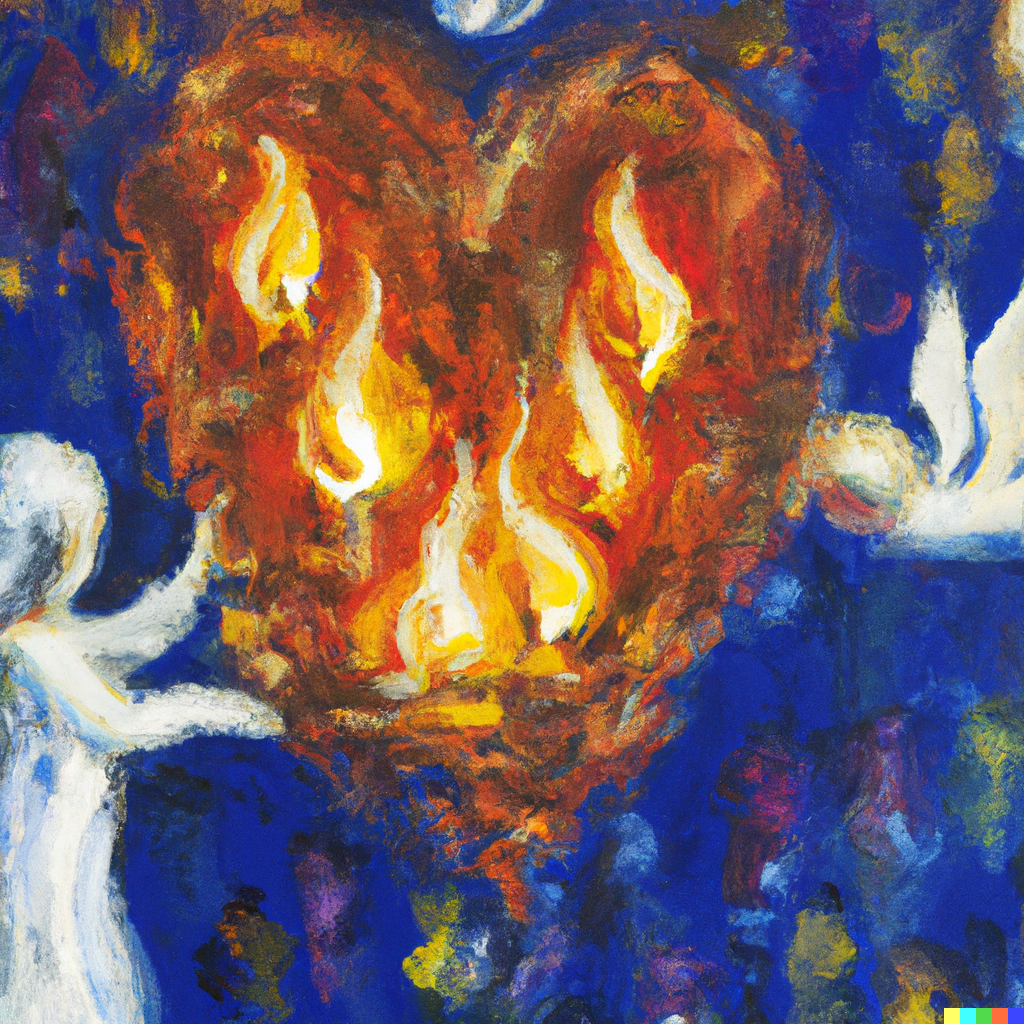Disenchantment
Chapter 17
Welcome to the 17th week of 2023.
This week I was reading in the book “How (Not) to Be Secular: Reading Charles Taylor,” author James K.A. Smith is describing the concept of disenchantment regarding the tensions or conflicting forces that people experience in our modern secular age.
(Disclaimer: This blog post almost turned into a book summary, so it’s quite lengthy. Please bear with me … “smile”. A nicer way to read this text is directly on my blog – warapunga.ch)
The Bible is full of mysticism, yet how do we read this in a disenchanted society? I know many of the faithful readers of my blog, you are not in an disenchanted world and immediately read the Bible with a very interconnected and mystic view of texts in the Bible. Yet many of us struggle with the texts with a disenchanted world view also due to the Reformation through its rejection of the sacraments, all but two: baptism and the Lord’s Supper. This rejection of the sacraments (Confirmation, Penance, Anointing of the sick, Holy Orders and Marriage) meant that the reformers placed less emphasis on ritual and more on the individual’s relationship with God. This led to a more personal and individualised approach to faith, which helped to promote a less enchanted and more rational worldview.
Two examples of mystical texts;
Moses and the burning bush; This supernatural encounter demonstrates the mystical power of God to communicate with humans in extraordinary ways.
Or the transfiguration, Jesus takes three of his disciples up a high mountain, where he is transfigured before them. Jesus’ face shines like the sun, and his clothing becomes dazzling white. Moses and Elijah also appear with Jesus, representing the Law and the Prophets. This mystical experience reveals Jesus’ divine nature to his disciples and offers a glimpse of the glory of God.
“While the world is disenchanted for us, we nonetheless also experience a sense of loss and malaise in the wake of such disenchantment.”
The quote suggests that many individuals find themselves pulled between two opposing forces – on one side is the force of disenchantment, or the view that the world is purely material and without any mystical or supernatural elements. However, on the other side, many people also feel a sense of significance and transcendent meaning, even if they believe that such meaning has been lost or is no longer attainable.
Disenchantment refers to the idea of stripping away the mystery, magic, and supernatural elements from the world, thereby reducing it to a purely material and scientific one. The concept was developed and argued that a process of rationalisation was taking place across Western society, leading to the loss of traditional beliefs and values. In a disenchanted world, there are no longer any mystical or spiritual powers that govern the universe, and everything can be explained by scientific or naturalistic means.
Disenchantment has been associated with the rise of secularism and the decline of religion in modern society. The idea suggests that the world has become less miraculous and more mundane, with technology and science replacing supernatural beliefs and practices. Some people view disenchantment as a positive development, as it encourages people to rely on reason and empirical evidence rather than superstition and religious dogma. However, others view it as a negative phenomenon that leads to a loss of meaning, purpose, and spiritual fulfilment, resulting in a sense of emptiness.
In other words, individuals might feel the weight of the secular worldview that dominates our society and the scientific/naturalistic explanations that come with it, yet they also yearn for a sense of meaning and significance beyond their material existence. This sense of significance can manifest in different forms based on personal belief systems. These opposing forces – immanence and transcendence – can create pressures in people’s lives as they navigate the complexities of our modern world.
Both ideas suggest that even in the face of conflict or loss, unity and connectedness remain essential to understanding one’s place in the world. Thus, the verse and the quote remind us that despite the challenges and conflicts of our modern secular age, we can still find hope and meaning by recognising our inherent unity as part of a larger whole.
Disenchantment and interconnectedness are closely related, as disenchantment refers to the loss of the mystical or supernatural , while interconnectedness implies a recognition of the complex and interconnected nature of the world.
Smith argues that the secular age presents opportunities for individuals to reimagine faith and spirituality, to find new ways of expressing and living out their beliefs that are relevant and meaningful in the context of contemporary society.
Therefore, while disenchantment and interconnectedness may appear to be opposing forces, faith and spirituality provide a way to reconcile these two perspectives.
Recognising one’s interconnectedness with the world, society, and the Divine can help us feel a sense of belonging to something greater than ourselves. This will offer a sense of purpose and meaning, even in a disenchanted world, by acknowledging and valuing the inherent interconnectedness present in all that exists.
Faith and spirituality provide a framework for us to make sense of the world and our place in it, offering a way to reconcile the tension between isolation and interconnectedness in the face of disenchantment.
As one possible solution to this tension a wonderful term is used. Porosity!
Porosity refers to the degree to which a substance or material is porous or has pores, which are small holes or openings that allow liquids, gases, or other substances to pass through.
In a spiritual sense the term “porous” is used to describe the pre-modern or enchanted worldview in which spiritual and material realms are not separated, and there is a continual exchange between them. The porous self is fully open to influences from the spiritual world and is receptive to supernatural experiences. It is characterised by a sense of interconnectedness between the divine and the natural world, and between individuals and their communities.
Smith argues that this porous understanding of the self has often been replaced by a secular view that sees the self as autonomous and separate from external influences. This represents a buffered or insulated self that is cut off from the divine and the supernatural.
A porous spirituality is one without the boundaries between the sacred and the secular and one’s spiritual life will integrate with all aspects of life. Porous spirituality is open, and receptive. A porous spirituality acknowledges that spiritual experiences and divine revelations can happen anywhere, and at any time. It is receptive to the spontaneous and unexplained, and it values the interconnectedness and oneness of all things. It is not limited by specific beliefs or religious doctrines, but rather it is characterised by wonder and mystery of the relationship to our Creator.
Porousness and disenchantment are not opposites, they do represent different ways of relating spiritual or mystical experiences. Porousness emphasises openness, connection, and vulnerability, while disenchantment emphasises scepticism, rationality, and detachment.
I’ll conclude with Psalm 42:1-2: “As the deer pants for streams of water, so my soul pants for you, my God. My soul thirsts for God, for the living God. When can I go and meet with God?” Here, it expresses a deep longing for God and a desire to be in God’s presence. This passage reflects a sense of porousness, or openness to the divine, seeking to connect with God and to be filled with God’s presence.
I hope that you are able to experience this sense of porousness as you connect with God this week.
Philemon




